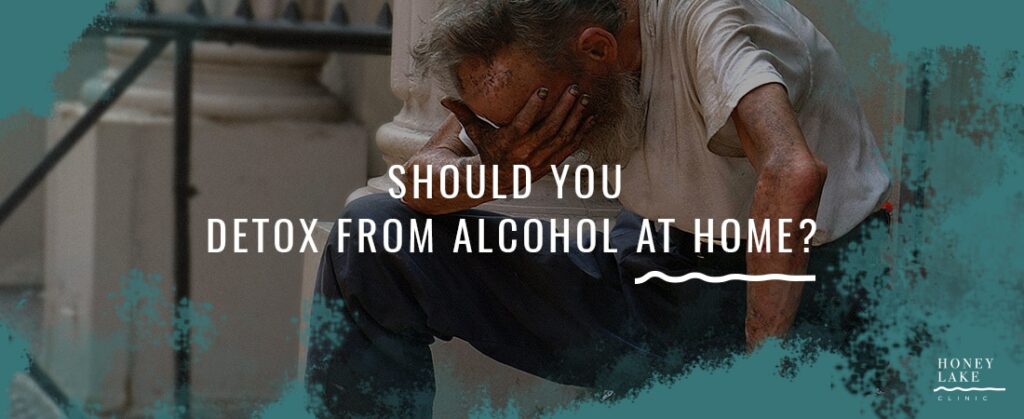Should you Detox from Alcohol at Home?
If you’re seeking recovery from your addiction to alcohol, one of the first decisions to make is whether to get detox help or simply go it alone.
Drinking alcohol has inherent risks. What starts as a few drinks socially, can lead to dependency. That’s not hyperbole. Recent studies suggest one in eight adults in America is an alcoholic.
Dependency is the preliminary stage of addiction. Symptoms of alcohol dependency include the desire to drink more than the desire to get drunk. You are seeking the substance itself. At this stage, you’re likely also beginning to isolate, becoming more self-centered, and not realizing the alcohol is having these negative social effects on you or that it is harming your health.
Drinking begins to take over your life. You’ve probably had friends or family members signal that you have a problem. Should you get help or try to stop on your own?
If you or someone you love is addicted to alcohol, we can help. Recognizing you need help is a vitally important first step.
There’s an old courtroom adage: The lawyer who represents himself has a fool for a client. The same could be said of an addict who decides to tackle his or her addiction on their own. Having medical and mental health professionals assist and oversee your detoxification can be the difference between success and failure.
How Successful is Alcohol Self-Detox?
Self-detox is attempting to give up drinking on your own, either by stopping cold-turkey or by tapering off your alcohol consumption. You’ll be trying to avoid triggers, people, and settings which usually lead you to drink. It’s a tough road to walk alone.
Studies suggest self-detox is rarely successful and many individuals give up within the first 24 hours. And it should go without saying, if you’ve been a heavy drinker, you may encounter severe withdrawal symptoms—and you don’t want to go these alone.
Physical Symptoms
Serious and disabling symptoms of detox should change your mind about trying to go it alone. These symptoms can be severe and need to be monitored by professionals. Physical symptoms include:
- Restlessness and irritability
- Agitation
- Blood pressure increases to very high levels.
- Aches and shakes, every muscle hurts as alcohol is flushed out of the system.
- Pulse increase with the stress of the withdrawal
- The digestive system moves into crisis; diarrhea is common
- The blood sugar levels drop, because alcohol is a form of sugar in the body.
- Hypoglycemia
- Headaches, dizziness, and confusion
- Tiredness, temperature changes in the body, hot and cold flashes
- Shaking and cramping muscles
Psychological Symptoms
There are also serious psychological symptoms to consider, including:
- Hallucination
- Intense cravings
- Anxiety
- Feeling like your body is coming apart
- Mood swings from depressed to hopeless to suicidal
- Paranoia with hallucinations which can escalate into defensive actions

The Advantages of Detoxing in a Treatment Program
In a qualified and capable treatment program, you’ll have medical and addiction professionals walk this path with you. Not only do you spare loved ones this difficult assignment, but you are able to lean on experienced professionals who’ve done this, successfully, many times over. They’ve seen it all and helped people through it. They know what to expect, how to respond, and have the necessary tools to help you at their discretion.
Depending on your addiction, certain medications may be helpful to alleviate some of your withdrawal symptoms, allowing you to focus more clearly on the work at hand—getting sober. These medications need to be prescribed, administered and monitored under the care of a licensed professional.
